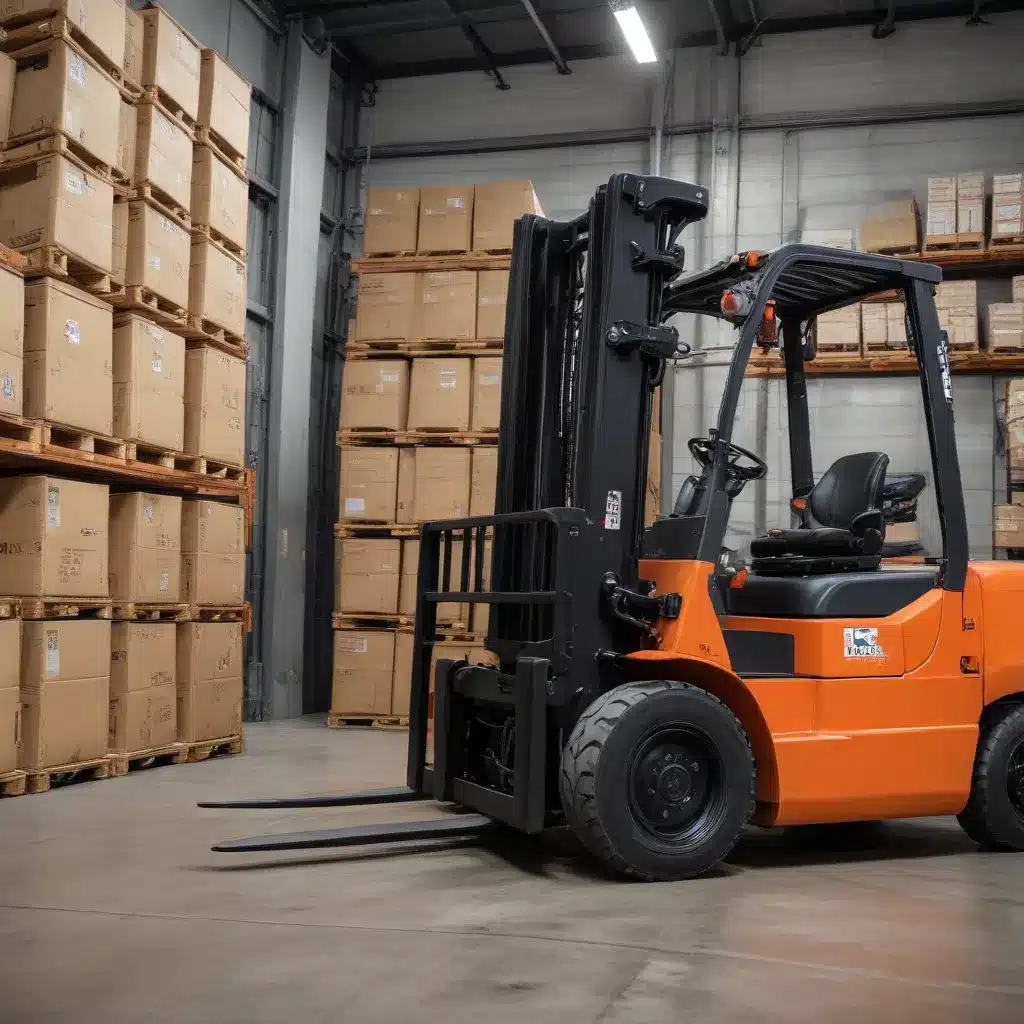
The Evolving Landscape of Forklift Fleet Management
As an industry expert in forklifts, warehousing, and logistics, I have witnessed firsthand the transformative impact of digitalization on fleet management. Gone are the days when forklift maintenance and operations were primarily manual, paper-driven processes. Today, fleet managers are embracing innovative technologies to streamline their operations, enhance visibility, and drive profitability.
The Challenges of Traditional Fleet Management
Traditionally, forklift fleet management has been plagued by a range of challenges, from cost inefficiencies and limited visibility to time-consuming manual tasks and compliance concerns. Without access to real-time data and integrated systems, fleet managers often found themselves relying on guesswork and intuition rather than data-driven decision-making.
Cost Control: Maintaining a fleet of forklifts can be a significant expense, and fleet managers have struggled to control these costs effectively. Without a clear understanding of maintenance schedules, fuel consumption, and utilization rates, it was difficult to optimize operations and maximize profitability.
Time Management: Paperwork and manual processes have long been a thorn in the side of fleet managers. Filling out inspection forms, coordinating maintenance, and managing documentation consumed valuable time that could have been better spent on strategic initiatives.
Visibility and Compliance: Keeping track of an entire fleet, from individual asset performance to compliance with industry regulations, was a constant challenge. The inability to proactively monitor and address issues often led to unexpected downtime, costly repairs, and potential safety concerns.
Embracing Digitalization: The Forklift Fleet Management Transformation
The good news is that the landscape of forklift fleet management is evolving rapidly, thanks to the transformative power of digitalization. By leveraging innovative technologies, fleet managers can now overcome the challenges of the past and unlock new levels of efficiency, visibility, and profitability.
Digitizing Maintenance and Inspections
One of the most significant advancements in forklift fleet management is the shift from paper-based maintenance and inspection processes to digital solutions. Electronic Daily Vehicle Inspection Reports (e-DVIRs) and integrated fleet maintenance software have revolutionized the way fleet managers approach these critical tasks.
With e-DVIRs, drivers can perform comprehensive inspections using their smartphones or tablets, and the resulting reports are seamlessly uploaded to a centralized dashboard. This eliminates the need for manual paperwork, reduces the risk of lost or misplaced documentation, and provides fleet managers with real-time visibility into the condition of their assets.
Furthermore, modern fleet maintenance software allows for the seamless configuration of preventative maintenance schedules, automated alerts, and the generation of electronic work orders. By streamlining communication and coordination with repair facilities, fleet managers can minimize downtime, optimize maintenance schedules, and maintain a comprehensive digital record of each forklift’s maintenance history.
Enhancing Visibility and Utilization
Integral to the success of any forklift fleet is the ability to track and monitor the performance and utilization of individual assets. Digitalization has made this task significantly more accessible and effective.
GPS-based vehicle tracking solutions, often leveraging drivers’ smartphones, provide fleet managers with real-time visibility into the location and movement of their forklifts. This data can be used to optimize routing, monitor driver behavior, and enhance overall operational efficiency.
Additionally, these digital tracking systems can provide valuable insights into the fuel consumption and mileage of each forklift, enabling fleet managers to make informed decisions about maintenance schedules, asset replacement, and cost-saving measures.
Improving Billing and Compliance
Accurate billing and compliance with industry regulations are crucial aspects of forklift fleet management. Digitalization has transformed these processes, ensuring greater accuracy, efficiency, and reduced risk.
Fuel tracking and billing automation technologies allow fleet managers to accurately monitor fuel usage, mileage, and other key performance indicators. This eliminates the need for manual inspections and streamlines the billing process, reducing the risk of errors and improving the overall accuracy of invoices.
Furthermore, digital record-keeping and automated compliance features ensure that fleet managers can easily demonstrate adherence to industry regulations, such as those set forth by the Occupational Safety and Health Administration (OSHA) for forklift operation and maintenance.
Driving Profitability through Data-Driven Insights
Perhaps the most significant benefit of embracing digitalization in forklift fleet management is the ability to leverage data-driven insights to drive profitability. By centralizing and analyzing fleet performance data, fleet managers can identify optimization opportunities, reduce costs, and make more informed strategic decisions.
Integrated fleet management platforms provide a comprehensive view of the entire fleet, offering valuable metrics on asset utilization, maintenance costs, and overall operational efficiency. Armed with this data, fleet managers can identify underperforming assets, optimize routing and scheduling, and implement proactive maintenance strategies to minimize unexpected downtime and maximize the lifespan of their forklifts.
The Future of Forklift Fleet Management: Embracing Innovation
As the forklift industry continues to evolve, the role of digitalization in fleet management will only grow more critical. By embracing these transformative technologies, fleet managers can position their operations for long-term success, ensuring enhanced visibility, efficiency, and profitability.
Whether it’s leveraging predictive maintenance to anticipate and prevent forklift breakdowns or exploring the integration of Internet of Things (IoT) sensors to monitor asset performance in real-time, the future of forklift fleet management is undoubtedly digital.
By staying at the forefront of these advancements, fleet managers can gain a significant competitive edge, delivering exceptional service to their customers while optimizing the performance and profitability of their operations.
Conclusion: The Digital Transformation of Forklift Fleet Management
The forklift industry is witnessing a profound shift, with digitalization emerging as a driving force behind improved visibility, efficiency, and profitability. By embracing the power of electronic inspections, fleet management software, and data-driven insights, fleet managers can overcome the challenges of the past and position their operations for long-term success.
As you navigate the evolving landscape of forklift fleet management, remember that https://www.forkliftreviews.com/ is here to provide you with the latest insights, practical tips, and industry-leading expertise. Stay informed, stay ahead, and unlock the full potential of your forklift fleet through the transformative power of digitalization.

